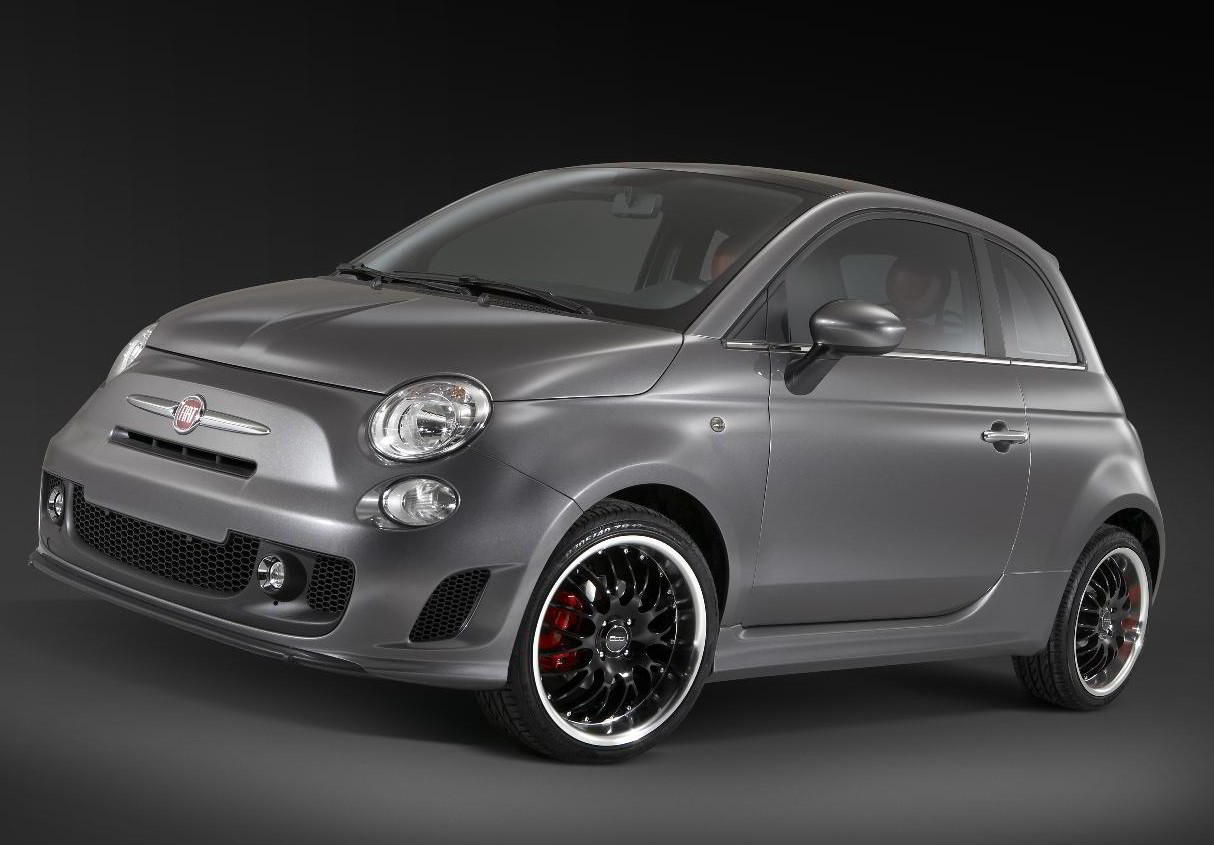Chrysler Group to develop Fiat plug-in electric
 |
| Fiat 500 EV |
Chrysler Group LLC today announced its plans to engineer and produce a pure electric vehicle using the Fiat 500 platform. Shown earlier this year at the 2010 North American International Auto Show, the Fiat 500EV demonstrates the immediate benefits of the alliance between Chrysler Group and the Fiat Group as well as the speed at which the two companies can work together on advanced vehicle programs. (See related Feature article).
“The alliance with Fiat presented new opportunities to merge Chrysler Group engineering knowledge with new platforms and the Fiat 500EV is an outstanding example of our efforts," said Scott Kunselman, Senior Vice President Engineering—Chrysler Group LLC. “The Fiat 500 is a small, lightweight platform perfect for integrating electric-vehicle technology."
The Fiat 500EV powertrain is comprised of three main systems; high power electric powertrain module, advance lithium ion battery, and an EV control unit to manage power flows. Beginning in 2012, Chrysler Group will manufacture the Fiat 500EV for the United States market. All powertrain engineering and vehicle development will take place at Chrysler Group headquarters in Auburn Hills, Mich. Pricing will be announced closer to launch, but will be competitive with similar electric vehicles in the market.
Chrysler Group is the vehicle electrification center of competence for both Chrysler Group and Fiat Group. The company is exploring ways to promote zero-emission transportation and the development of an electric-vehicle charging infrastructure through partnerships to be announced in the future.
Last year Chrysler Group announced the company’s intention to build the Fiat 500 with a combustion engine for North America. The vehicle will debut in late 2010.
Ram Plug-in Hybrid Electric Vehicle (PHEV)
Chrysler Group has been selected for a U.S. Department of Energy (DOE) grant of up to $48 million as part of a $2.4 billion American Recovery and Reinvestment Act DOE Vehicle Electrification program. Chrysler Group is planning to build a total of 140 Ram PHEVs for a three-year demonstration project that includes various geographic and climatic locations across the United States.
“This initiative represents how government, automotive industry, suppliers and key partners are reaching common goals and demonstrates how rapidly this type of advanced technology can be brought to market," said Paolo Ferrero, Senior Vice President—Powertrain, Chrysler Group LLC. “DOE-support for domestic advanced technology is an important enabler for Chrysler Group and its key suppliers in order to understand and test customer acceptance and the capability of PHEV systems in a variety of real-world conditions."
The Ram PHEV features Chrysler Group’s 5.7-liter HEMI V-8 with a two mode hybrid transmission and a 12KwHr lithium ion battery. The vehicle is capable of up to 20 miles of zero-emission, pure-electric range without the need for gasoline. An overall fuel economy improvement more than 65 percent is expected for average drive cycles. Chrysler Group has partnered with Electrovaya Inc. to supply the advanced lithium Ion batteries for the Ram PHEV test fleet.
The DOE grant will expedite the development of vehicle-electrification technology. More than 21 Chrysler Group partners across the U.S., including utility companies, government agencies and Universities will independently test the Ram PHEV and provide valuable data for the advancement of the technology.
In 2008, Chrysler Group announced the company’s intention to bring a Ram Hybrid Electric Vehicle (HEV) to market. After closely evaluating the response to hybrid pickups in the marketplace, the company could not formulate an appropriate business case and has decided to cancel development work on the 2011 Ram HEV.
Chrysler Group’s alliance with Fiat Group brings new platforms and technologies that allow the company to create an improved long-term product strategy with greater fuel efficiency and reduced emissions. Chrysler Group’s five-year plan has an uncompromising product schedule, including a progressive vehicle electrification strategy.
